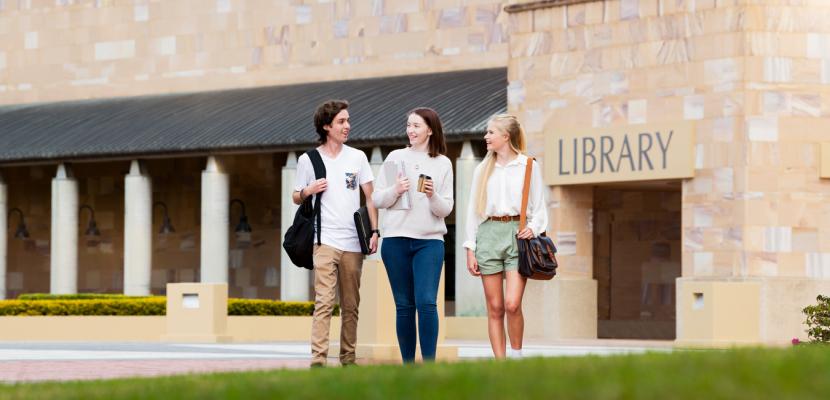
A Bond University subject completed by every undergraduate student has been recognised for its pioneering approach to sustainability education, winning a national curriculum competition.
Collaboration for Global Change took out the Next Generation Learning and Skills category at the 2025 Green Gown Awards Australasia in Sydney.
The subject, which is part of Bond’s Core Curriculum and mandatory for all undergraduates, is designed to equip students with the skills to address the United Nations’ Sustainable Development Goals (SDGs).
It combines immersive charrettes – intensive workshops – with design thinking, Indigenous knowledge systems and AI-enhanced collaboration to develop practical solutions to global challenges.
Students work across faculties on projects that range from an app about Amazon deforestation to a “bee highway” seed-distribution initiative.
Their work is presented in poster displays detailing feasibility, projected impact and implementation plans.
The curriculum was co-developed by Bond’s Transformation CoLab with input from an on-campus Indigenous elder, faculty leaders, students and learning and teaching specialists.
The subject’s lead educator, Associate Professor Daniel Brennan, said Collaboration for Global Change brought students from different disciplines together to tackle issues that cross traditional professional boundaries.
“We have students from medicine talking to students from law, and students from physiotherapy and property, about the issues that intersect between their disciplines,” Dr Brennan said.
“We’re embedding this kind of cross-sector thinking and conversation into every undergraduate experience, before students have even obtained their professional qualifications.
“It’s this approach that makes it a crucial part of the undergraduate experience at Bond.”
Deputy Provost Education Professor Jeffrey Brand said the Transformation CoLab, Bond’s hub for innovative learning and teaching, was a form of cultural glue for the undergraduate student experience.
“Collaboration for Global Change engages students with the significant challenges of our time – including the use of generative AI, working together effectively, and understanding the relationship between sustainability and the future of our students,” he said.
“It is an exemplar of curriculum innovation and assessment reform.”
More than 400 students complete the subject every semester, collaborating with community partners, local government and businesses to refine and implement their projects.
The subject draws on Indigenous knowledge, giving students a perspective on sustainability that considers community needs and long-term outcomes.
It also builds practical skills in collaboration, systems thinking and civic engagement, enhancing their employability and real-world problem-solving.
Students’ engagement with local stakeholders has influenced sustainable planning and community resilience initiatives.
Bond will now progress to the International Green Gown Awards.